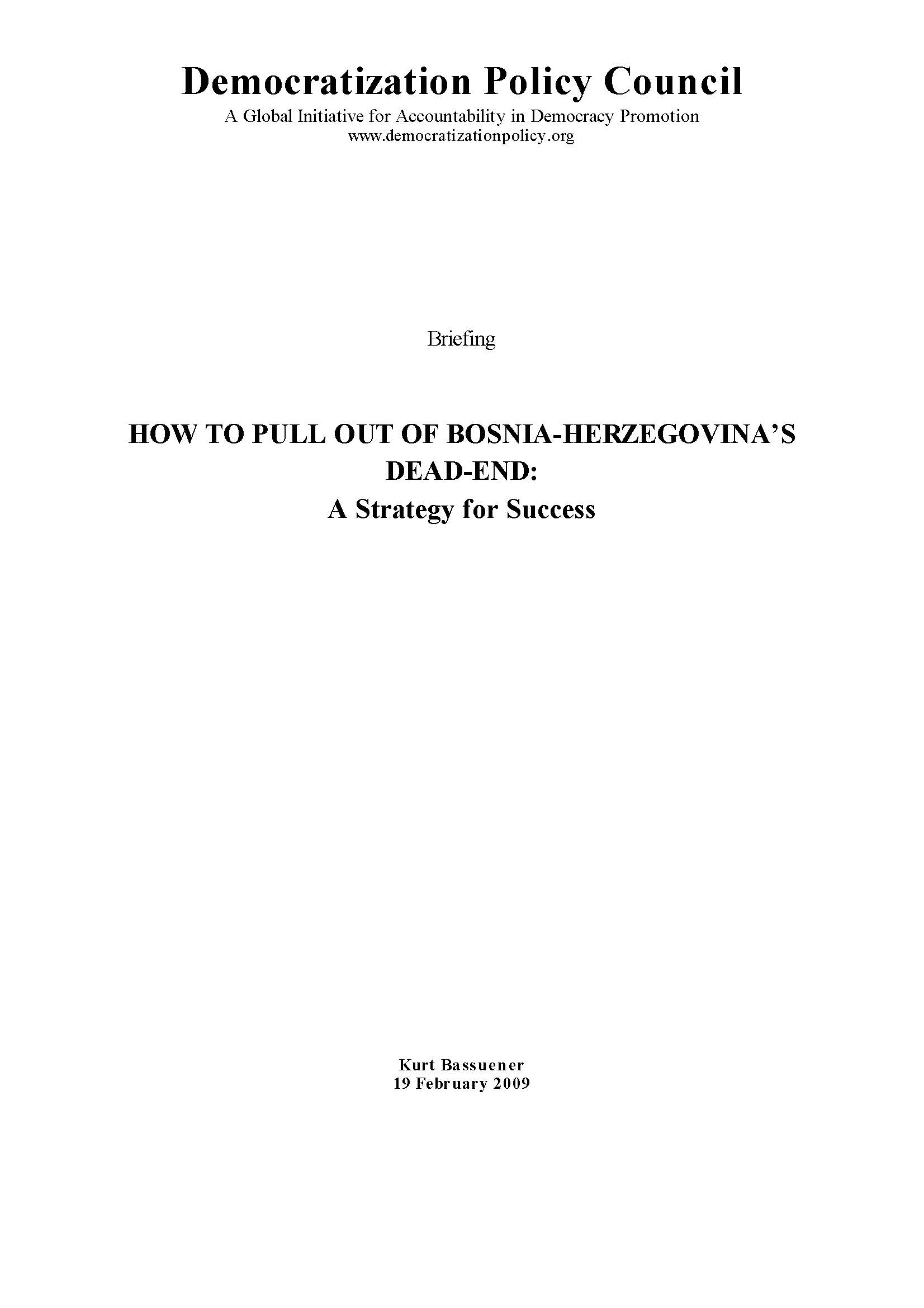№04 How to pull out of bosnia-herzegovina’s dead-end: A Strategy for Success.
№04 How to pull out of bosnia-herzegovina’s dead-end: A Strategy for Success.
Author(s): Kurt Bassuener
Subject(s): Politics, Governance, Government/Political systems, International relations/trade, Security and defense, EU-Approach / EU-Accession / EU-Development
Published by: DPC Democratization Policy Council e.V.
Keywords: BiH; dead-end; strategy; EU; US; EUFOR; constitutional reform; EUSR; Balkans; NATO; Haris Silajdžić; Milorad Dodik; Dayton accords;
Summary/Abstract: The international community’s 13+ year effort in Bosnia and Herzegovina is failing. A continuation of the current trajectory will ultimately result in renewed conflict. Bosnian citizens now harbour greater fear of conflict than at any point since Dayton. Both the EU and the US have a lot to lose. Growing international frustration is evident in wishful thinking and desperation. While the EU has reduced its peace implementation force (EUFOR) to mere symbolic levels, the international community desperately embraces vague three-party agreements among nationalist leaders. Many hope that a transition from the Office of the High Representative (OHR) to a “reinforced” EU Special Representative (EUSR) will “restore momentum” to Bosnia’s European perspective. State-building and reform processes in Bosnia and Herzegovina ground to a halt in 2006 and have since slid backwards. Republika Srpska (RS) Premier Milorad Dodik and Bosniak member of the State Presidency Haris Silajdžić helped drive this downward spiral. Yet while their actions and rhetoric generated angst and insecurity, they are the logical products of deeper structural problems. The Dayton constitution makes leveraging fear politically profitable and politicians unaccountable. Bosnian politicians pursue their self-aggrandizing, maximalist goals at the expense of the general welfare.Thanks to the absence of credible options, most citizens feel unrepresented in government. This must be remedied for the country to work. The international community can reverse out of this dead-end only if the EU and US act in concert to prevent further generation of the fear and insecurity that fuels politics in Dayton Bosnia and Herzegovina. They must then pursue constitutional reforms with broad popular legitimacy, creating incentives for responsive government. Otherwise, the country cannot even begin to meet EU standards. High-level US re-engagement is also essential to arresting Bosnia’s downward slide. In any event, the international community’s oversight role is far from over. Acceptance of this need for long-term engagement is required.
Series: DEM. POLICY COUNCIL - Policy Briefs
- Page Count: 9
- Publication Year: 2009
- Language: English
- Content File-PDF

